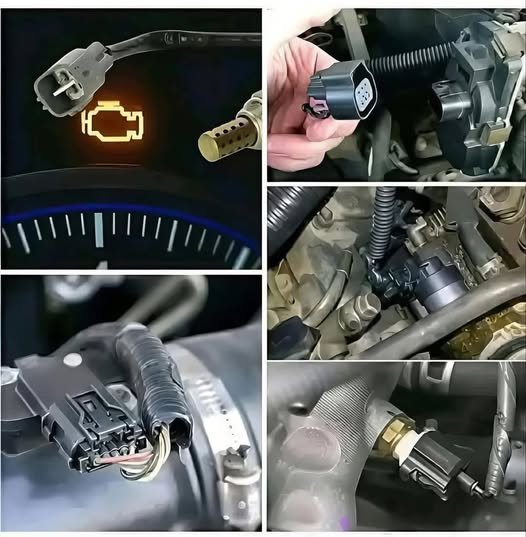Fuel efficiency is influenced by various components and sensors in your vehicle. Modern cars are equipped with advanced sensors that monitor and regulate engine performance, fuel consumption, and exhaust emissions. Here are five key sensors that directly impact your car’s fuel efficiency:
1. Mass Air Flow (MAF) Sensor
- Function: Measures the amount of air entering the engine.
- Impact on Fuel Efficiency: The engine control unit (ECU) uses this information to calculate the right amount of fuel to inject into the engine. If the MAF sensor is faulty, the engine may either run too rich (too much fuel) or too lean (too little fuel), leading to poor fuel efficiency and higher emissions.
2. Oxygen (O2) Sensors
- Function: Measures the level of oxygen in the exhaust gases.
- Impact on Fuel Efficiency: Oxygen sensors help the ECU optimize the air-fuel mixture by detecting whether there’s excess fuel or oxygen in the exhaust. A malfunctioning O2 sensor can cause the engine to run inefficiently, leading to increased fuel consumption and poor combustion.
3. Throttle Position Sensor (TPS)
- Function: Monitors the position of the throttle plate, which controls the amount of air entering the engine.
- Impact on Fuel Efficiency: The TPS sends data to the ECU to adjust the air-fuel ratio based on how much acceleration is needed. A malfunctioning TPS can cause incorrect fuel mixture adjustments, leading to inefficient fuel usage and reduced fuel economy.
4. Fuel Pressure Regulator Sensor
- Function: Monitors the fuel pressure within the fuel rail.
- Impact on Fuel Efficiency: If the fuel pressure is too high or too low, the engine may not get the correct amount of fuel, either wasting fuel or starving the engine of fuel. A malfunctioning fuel pressure regulator sensor can cause the engine to run inefficiently, leading to decreased fuel economy.
5. Engine Coolant Temperature (ECT) Sensor
- Function: Measures the temperature of the engine coolant.
- Impact on Fuel Efficiency: The ECU uses the ECT sensor to determine the ideal fuel mixture when the engine is cold. If the coolant temperature is not read correctly, the engine may run richer (using more fuel) or leaner (using less fuel) than necessary. This can lead to poor fuel efficiency, especially during engine warm-up periods.
Conclusion:
These sensors play a critical role in ensuring the engine runs at its most efficient state. Regular maintenance and timely repairs of these sensors can help improve your car’s fuel economy and performance.



